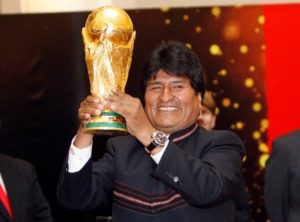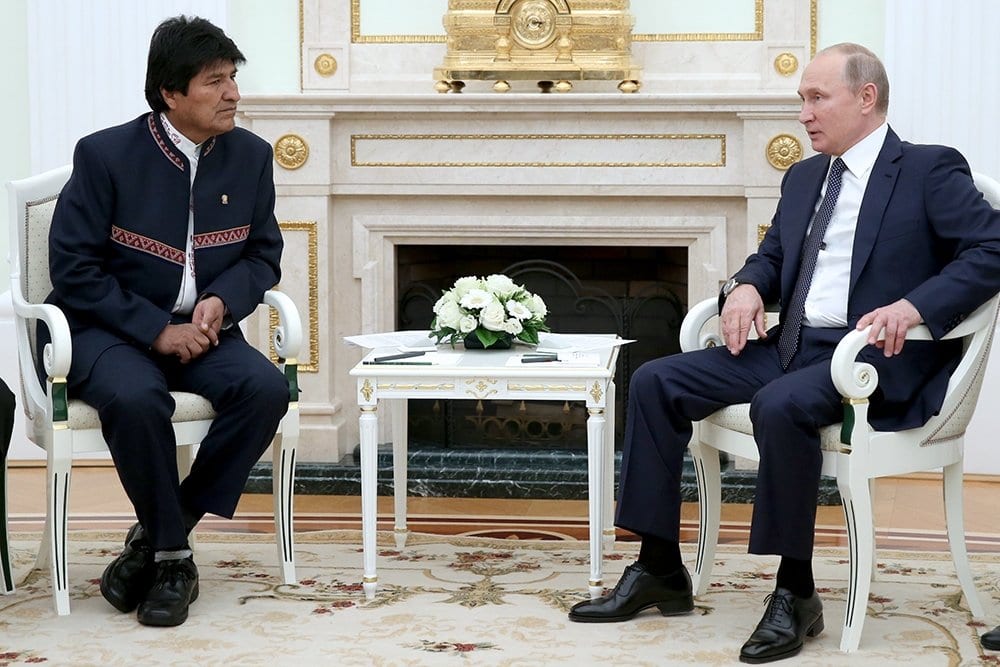
This time the visit of the Bolivian president to Russia was prepared for a few months, and despite its short duration, from the 13th to the 14th of June, Evo Morales was able to carry out a rich program. On the 13th of June, a long-awaited meeting of the two leaders was held. In the framework of a lengthy conversation, Morales repeatedly supported Russia’s presence in the Latin American region. As Morales believes, geopolitical indicators show Russia’s component in Latin America is very important. In addition, the Bolivian leader stressed his support for Vladimir Putin in “searching for multipolarity in the world”.
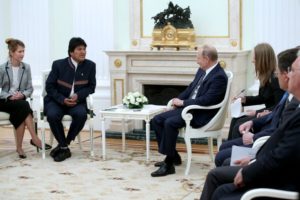
The Bolivian president also “attacked” with sharp criticism of Colombia’s intention to become an NATO’s global partner. According to Morales, this will lead to the resolution of conflicts through military action and intervention in all countries of Latin America. The Bolivian leader at the same time believes that in any case, the peoples of all countries must decide for themselves whether to join them in the NATO or not. However, the representatives of the “left” camp of Latin America, according to the Bolivian president, are “fighting” for the continent without military conflicts and for social justice, for without these postulates no peace can be guaranteed.

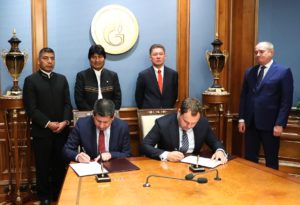
According to the text of the Memorandum, the parties intend to develop mutually beneficial cooperation in regional geology and compilation of geological maps, investigation and development of mineral resources, forecasting and mineralogical studies, and the use of geophysical methods for the discovery of mineral deposits and groundwater.
In addition, Bolivia and Russia intend to carry out mineral reserves expertise, review technical projects for the development of mineral deposits, analyze and process geological information, to exchange geological maps and geological data bases, to provide organizational support in the training of professional personnel, and training of personnel.
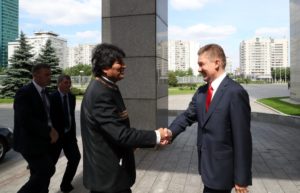
In conclusion, the president of the Plurinational State of Bolivia expressed gratitude to the president of the Russian Federation, Putin, for the warm welcome extended to him during his stay in Russia, and invited him to visit Bolivia shortly.
